Iran's LGBTQ Community Vows To Fight Regime’s Sexual Apartheid
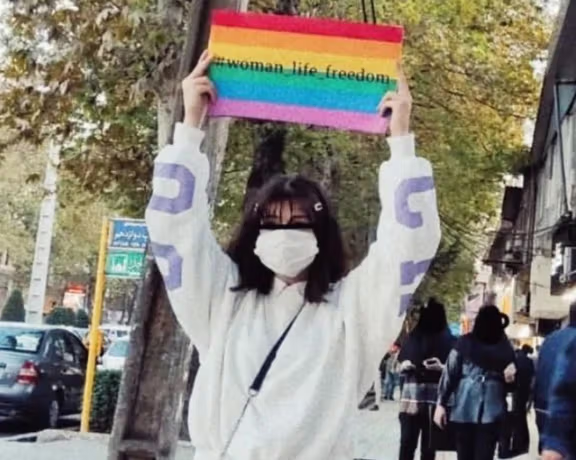
The Iranian Queer Liberation Front has vowed to continue the fight against sexual and gender apartheid in Iran.

The Iranian Queer Liberation Front has vowed to continue the fight against sexual and gender apartheid in Iran.
“Feminist struggles must continue against all forms of core patriarchy upon which the regime is founded,” it announced on International Women’s Day.
The statement called the ‘Woman, Life, Freedom’ movement a turning point in the struggles of the LGBTQ community of Iran in the fight against sexual and gender apartheid and patriarchal structures.
“This year's International Women’s Day is an opportune moment to voice our common struggle louder and more expressively and renew our commitment to our joint struggle. It is a struggle that is symbolically and actually inclusive of all women,” it added.
Since the beginning of the uprising in September, Iranian LGBTQ activists have expressed their demands after the fall of the Islamic Republic by participating in popular struggles inside and outside the country.
Prominent opposition figures, including Prince Reza Pahlavi and Masih Alinejad, have repeatedly emphasized the need to support the rights and freedoms of the queer community in Iran should the Islamic Republic collapse.
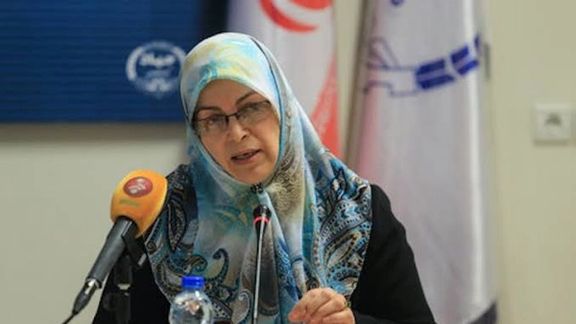
An Iranian reformist party has demanded an end to compulsory hijab and laws that legalize child marriage and discrimination against women in education and work.
In a statement to mark International Women’s Day, the Etehad-e Mellat party strongly criticized the many discriminatory laws of the Islamic Republic against women including the compulsory veiling laws and called for their abolition or change.
Etehad-e Mellat, formed in 2015, is the only major Iranian political party with a female secretary general, Azar Mansouri, who was elected by the party’s congress in December 2021. Many of the party’s members are veteran reformist politicians and activists and members of the Islamic Iranian Participation Front (Mosharekat) which was banned in 2009.
In the past few years the anti-compulsory hijab movement which took root with a social media campaign in 2017 called White Wednesdays, has hugely grown. The movement has gained greater momentum since the death in custody of the 22-year-old Mahsa Amini in September and the protests that her death sparked.
Many women now are adamant to be hijab free in public. They can be seen defiantly rejecting the head scarf everywhere, from restaurants to banks and in parks where previously, they could not even enter without a head covering.
To re-establish its control over women, authorities have resorted to threats against women again. After the video of a female pharmacist’s argument with a customer who demanded that she should wear the hijab went viral recently, authorities ordered all female pharmacists and pharmacy workers to wear maqna’e, a black veil with stitched front coming down to the chest that is much more conservative than the headscarf, and threatened to shut down the pharmacies if their staff did not comply.
Family laws give men the right to make decisions about women’s lives and Etehad-e Mellat wants to see this change. In a statement, it says that state-sponsored cultural entities and media help promote fundamentalist views and provoke the religiously-minded to restrict women’s rights and freedoms.
The party has also criticized discrimination against women in higher education as women are barred from studying certain subjects or given limited acceptance opportunities to allow more men to enrol. There is also discrimination against women when it comes to holding teaching positions in universities and higher government positions.
Etehad-e Mellat also criticized the authorities for trying to cast women in the role of housewives and men as breadwinners and giving the men the right to stop their wives from working after marriage while also encouraging marriage of girls as young as thirteen.
Iran's state media often air the views of fundamentalist clerics and others who tell women and girls that it is their religious duty to obey and serve their husbands, to marry young and to raise many children.
Many in Iran are critical of the population policy espoused by the regime to boost the country’s population growth as Supreme Leader Ali Khamenei has always demanded. Khamenei has repeatedly said that Iran’s population should increase from 80 million to 150 million.
In a statement released on Sunday, some women’s rights activist groups vowed to continue their struggle against the regime until the victory of the Woman, Life, Freedom movement. In their statement, they enumerated the various discriminations against women in the Islamic Republic including the right to travel abroad without their male family members or husbands’ permission, discriminatory inheritance laws in favor of male inheritors, restrictions on women’s right to seek divorce and to have custody of their children.
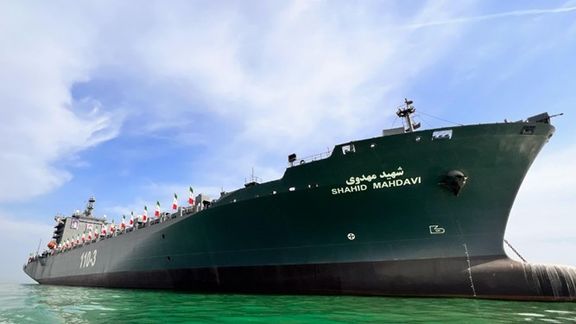
Iran’s Revolutionary Guard Corps navy announced it has added a new ocean-going warship and tens of missile-launching speed boats to its fleet.
The vessels were part of a major upgrade, bolstering the country's navy fleet in the midst of the worst recession in recent history.
The IRGC held an unveiling ceremony in the port city of Bandar Abbas on Thursday but did not declare how much the project had cost.
The Iranian-made Shahid Mahdavi warship, converted from a commercial vessel, will take center stage in the fleet’s renewal, along with 99 Ashura and Tariq speed boats, which have been upgraded from rocket-launching vessels to missile-launching ones.
The bolstering of the fleet comes amidst growing tensions between Iran and its arch enemy Israel. Iran has been claiming to have deployed more weapons and radars following threats from Israel which says that military force has not been ruled out, while Iran continues expanding its nuclear weaponry.
“The Mahdavi ocean-going vessel is ready to carry out missions with all the necessary equipment and facilities to create stable security in the seas,” said IRGC Navy commander Alireza Tangsiri.
According to Tangsiri, the 2100 ton Shahid Mahdavi, which measures 240 meters in length and 27 meters wide, is equipped with a 3D phased array radar, surface-to-surface and surface-to-air missiles, and highly advanced telecommunication systems.
It is capable of carrying helicopters, UAVs, missile launchers, as well as missile defense and radar systems.
He added that the range of missiles on the speed boats is between 10 and 180 kilometers, and according to him, this is the first time that such vessels have been designed with this feature.
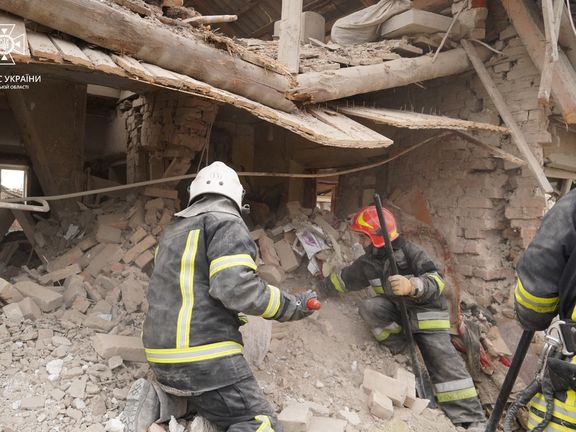
Russia unleashed a large-scale missile and drone attack on Ukraine Thursday morning targeting energy infrastructure and killing at least six people.
According to the Ukrainian military, Russia used 81 missiles and eight Iranian-made Shahed kamikaze drones in the attack.
The attacks were mainly on energy facilities and hit more than half a dozen regions, striking the capital Kyiv, the Black Sea port of Odesa and the second-largest city Kharkiv.
Ukraine's military said air defenses knocked out at least 34 missiles and four Shahed suicide drones, but regional officials said five people were killed in the western region of Lviv and one in southeastern Dnipropetrovsk in southeastern Ukraine.
"This was a major attack and for the first time with so many different types of missiles...The enemy launched six Kinzhals," air force spokesperson Yuriy Ihnat said. "It was like never before."
Iran has supplied hundreds of Shahed and other drones to Russia since mid-2022, and although Ukraine is capable of shooting down most of the slow-moving UAVs, Russia relies on the Iranian weapon to swarm Ukraine’s air defenses.
The United States and its European allies have imposed a series of sanctions on Iranian individuals and companies involved with the drone program and shipments of the weapon to Russia. They have also warned Tehran that one of the conditions to restart nuclear talks is ending its weapons supplies to Russia. A nuclear agreement between Iran and West could suspend most economic sanctions and boost the country’s economy.

Amid global events marking International Women's Day, right groups and organizations have called for investigations into chemical attacks on Iranian schoolgirls.
In a tweet on Wednesday, UNESCO urged thorough investigations and immediate actions to protect schools and facilitate the return of affected students in Iran to their safe and healthy classrooms. UNESCO Director-General Audrey Azoulay expressed deep concern “about the reported poisoning of schoolgirls in Iran over the past three months,” describing the attacks as “a violation of their right to safe education.”
Demonstrators on the International Women's Day in many countries called for solidarity with women's rights protests in Iran as well as with Afghanistan’s girls who are banned from education. In cities, including Berlin, Cologne, Paris and several others, people carried banners in support of the “Women, Life, Freedom” movement in Iran, the antigovernment protests ignited by the death in custody of 22-year-old Iranian woman Mahsa (Zhina) Amini in September.
While the Islamic Republic has been fiercely cracking down on dissent and seems to be involved in serial chemical attacks on schoolgirls that have reportedly affected thousands of students, activists and right groups have called on the international community to pressure the regime over the issue.
Dozens of Iranian women activists and lawyers have launched a petition, calling for the formation of a crisis management taskforce comprised of independent doctors, lawyers and experts as well as parents of the affected students to investigate the poisoning.
The petition said that during the past three months of attacks, more than 2,000 students have been affected with many hospitalized, claiming that these are undoubtedly an orchestrated operation to terrorize society.
In a separate open letter issued on Wednesday, a group of prominent Iranian and Afghan female activists called on the world to hold the Islamic Republic accountable for the attacks and help to end them. They urged governments to acknowledge “the gender apartheid” in Iran under the Islamic Republic and Afghanistan under Taliban.
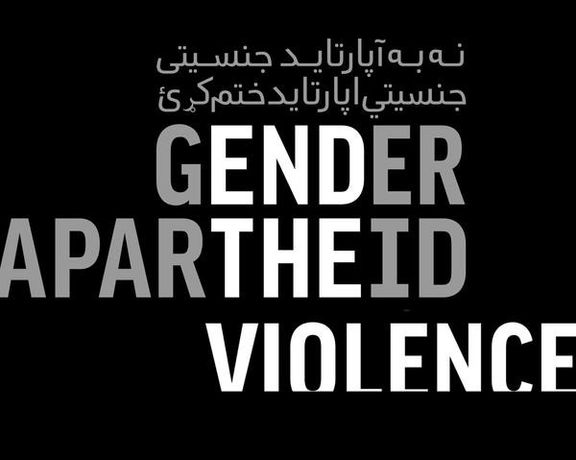
The signatories, which include opposition figures such as Iranian Nobel Peace Prize Laureate Shirin Ebadi and activist Masih Alinejad and Afghan activist Fawzia Koofi, said in their letter, "Looking at the example of condemnation of apartheid in South Africa by the international community, women living in Iran and Afghanistan are demanding similar responses to end these gender apartheid regimes."
They emphasized that the rights violations by the Islamic Republic and the Taliban are not limited to cases of gender discrimination, but these governments have waged a "more extreme, systematic and structural war" against women to suppress them. In addition to support from the international community, they want the world to criminalize “gender apartheid” in Iran and Afghanistan according to international conventions.
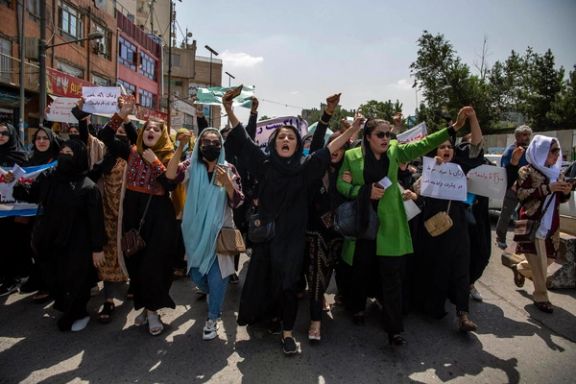
Foreign governments and officials have been vocal about the mass poisonings and other women’s rights violations by the Islamic Republic and Taliban. In a statement on International Women’s Day, US President Joe Biden said, “Despite decades of progress, in far too many places around the world, the rights of women and girls are still under attack, holding back entire communities. We see it in Afghanistan, where the Taliban bars women and girls from attending school and pursuing employment. We see it in Iran, where the regime is brutally repressing the voices of women who are courageously standing up for their freedom.”
The UK and the US, the European Union, and Australia issued sanctions on the Islamic Republic to mark International Women's Day. The UK targeted global violators of women’s human rights, including Iran's morality enforcing outfit and its top official, while the US imposed sanctions on Iranian officials and companies over serious human rights abuses.
Also on Wednesday, Member of the European Parliament Hannah Neumann said the Parliament will debate the poisoning of schoolgirls in Iran Wednesday next week, followed by a resolution, adding, “This provides another important opportunity to raise awareness about the repression in the country -- and the brave opposition to it.”
On Tuesday, 20 prominent Iranian lawyers and human rights advocates has issued a joint letter, calling on the WHO, the UNESCO, the UNICEF and the International Committee of the Red Cross to immediately visit Iran and probe into the serial poisoning of schoolgirls.
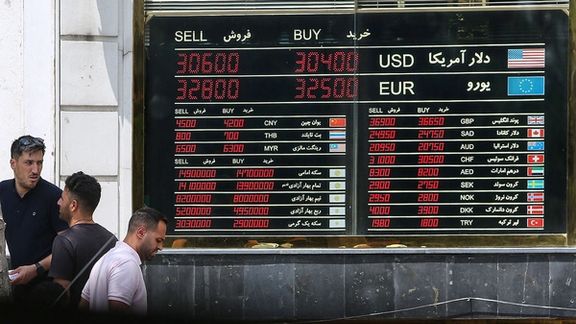
Iran's former ambassador to Japan, Canada and the UK says the Islamic Republic conducts foreign trade via international smuggling and money laundering networks.
Amid a deep economic crisis, commentaries about the impact of foreign policy, meaning isolation and sanctions, on the country’s well-being have become more frequent.
Mohammad Hossein Adeli told Ham-Mihan Daily that by using these networks, Iran circumvents US sanctions. "As long as we are doing this, our situation is not normal. This is a costly way that entails high inflation for Iran."
Adeli who was the governor of Iran's Central Bank under President Akbar Hashemi Rafsanjani and the country's ambassador to several key countries under the reformist government of President Mohammad Khatami, said Iran is a country that cannot remain isolated.
He maintained that although some “revolutionaries” advocate isolation as a way of growth, they need to know that even China owes its growth to foreign investment and a $760 billion per annum trade with the United States. Adeli added that "isolation will drag Iran into collapse and instability and its economic development depends on national power and stable and intelligent interaction with the world. That is how China, India, Indonesia, Brazil, South Africa and Vietnam have successfully survived and their economies grew."
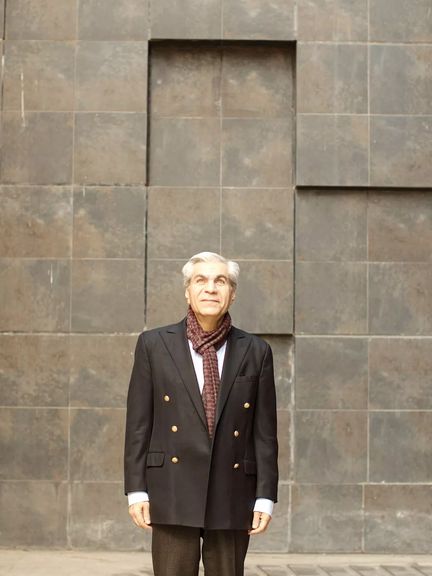
Adeli further stressed that economic sanctions cause a bigger loss for Iran than any war. He added that Iran is under the pressure of a series of deep and complicated sanctions. The added cost of domestic and international trade under sanctions disrupts Iran's economy and increases the cost of everything.
"People are in trouble for their everyday livelihood and the country cannot develop. When there is no prospect for future, people lose their hope. As a result, law breaking becomes a norm and social relations are disrupted. That, eventually causes revolt in the country," Adeli said.
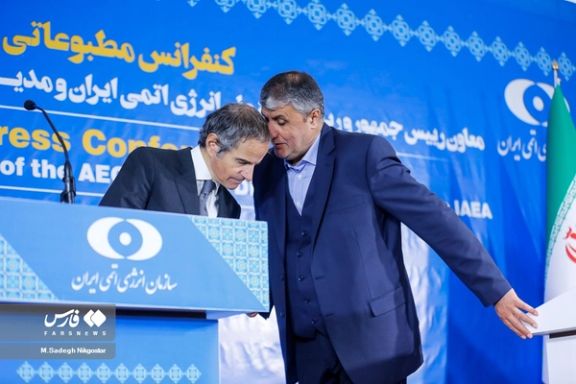
Meanwhile, a commentary in the moderate news website Faraz daily maintained that IAEA Director General Rafael Grossi's visit to Tehran quickly helped Iran’s currency to rise after the media quoted a few lines from his statement about agreement over cooperation. The commentary asked whether this would bring the government in Tehran to its senses and encourage it to recognize the link between foreign policy and people's livelihood.
According to Faraz Daily, this development clearly highlighted the importance of foreign policy on the country's economy, while Iranian officials have been insisting that their isolationist foreign policy has no impact on the people's livelihood.
At the same time, the commentary observed, that not interacting with the world during several years of economic sanctions has led to a crisis for Iran's people and government.
There are indications that at least some politicians in Iran who are usually trusted by Supreme Leader Ali Khamenei are encouraging the government, and in fact Khamenei, who single-handedly makes all decisions on all matters including the economy and foreign policy, to be more flexible in their interactions with the West and particularly the United States.
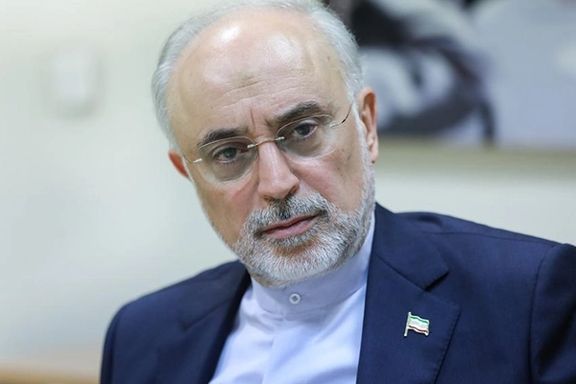
Iran's former nuclear chief Ali Akbar Salehi said on Tuesday that Iran should show flexibility in its negotiations with the West in order to end its international isolation.
Salehi said during a speech at the Iranian Foreign Ministry, "Resistance should come along with prudence. When we face serious obstacles, we need to show intelligent flexibility in order to end our isolation." This, Salehi said, is a wise reaction. He also warned Iranian diplomats, "not to create political or diplomatic deadlocks."